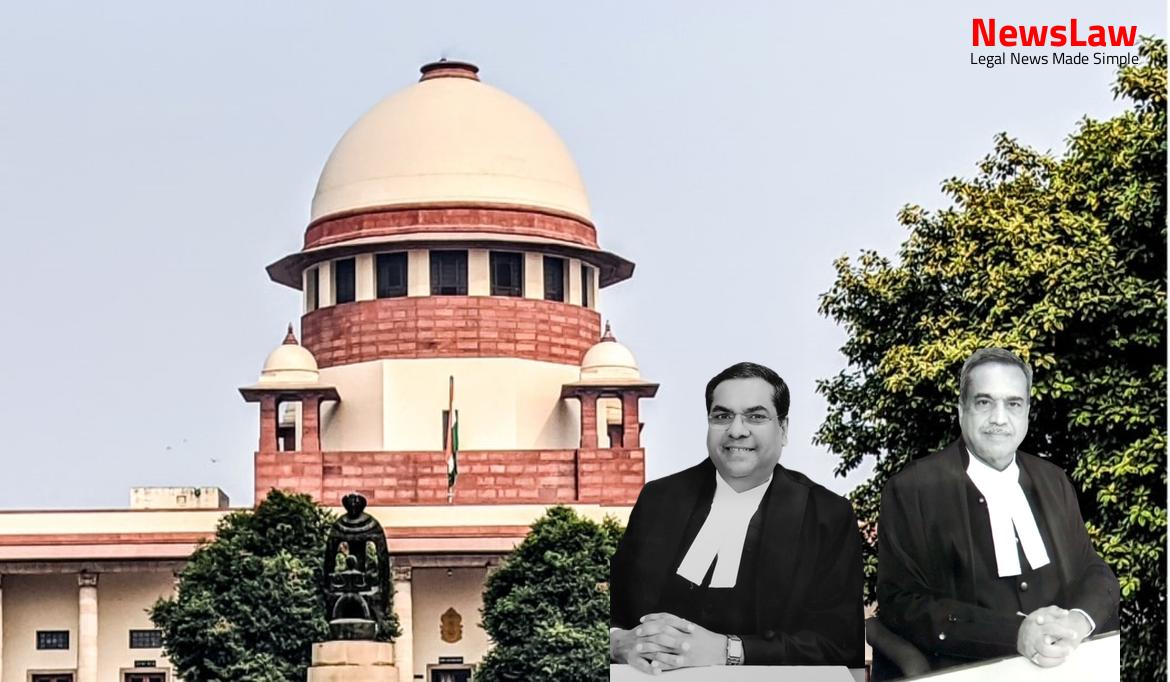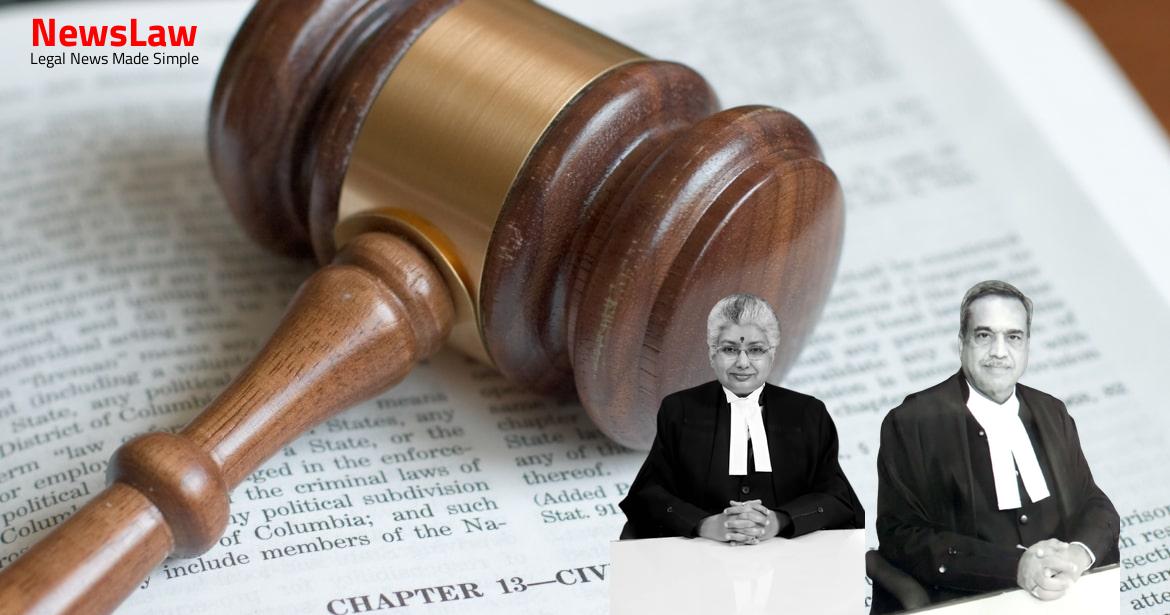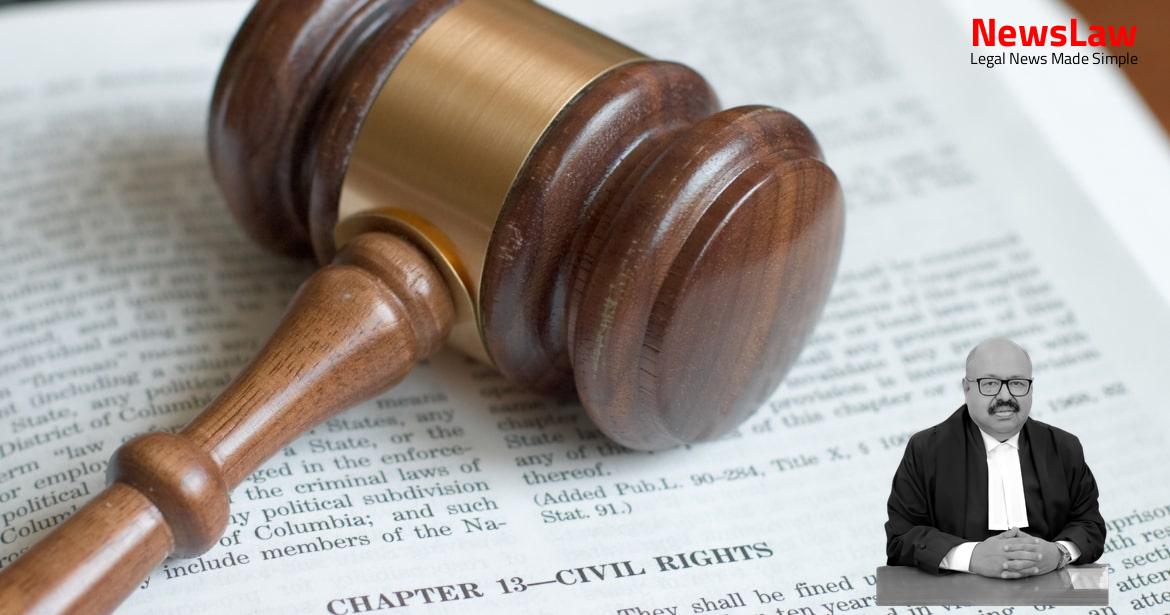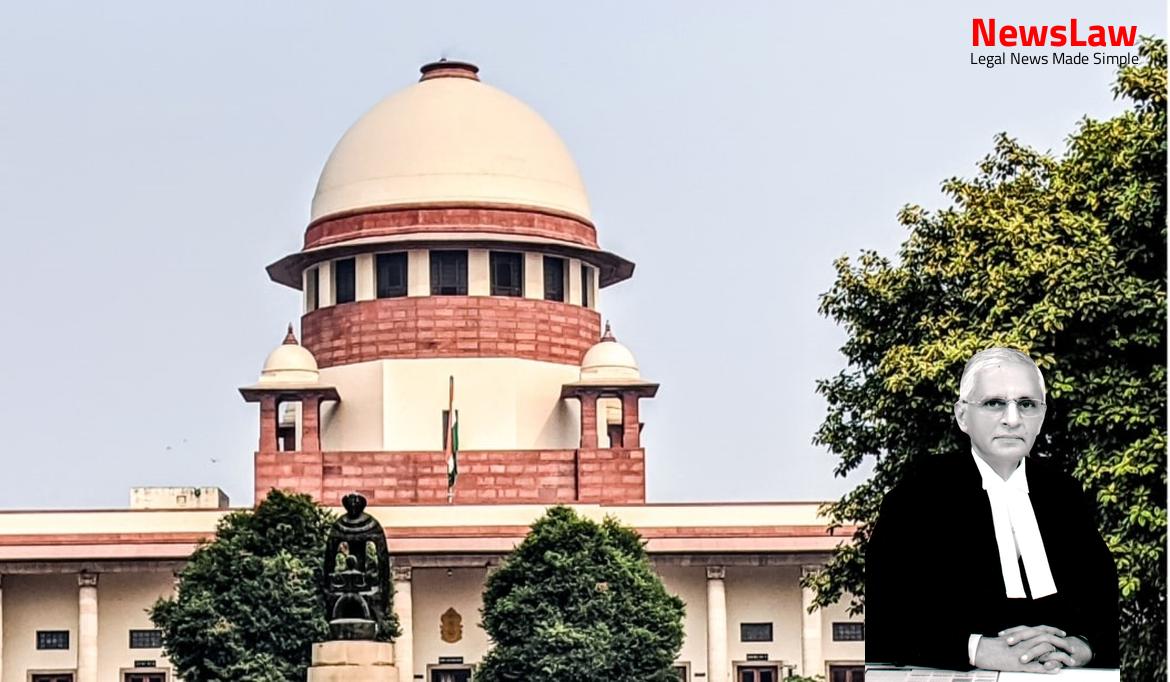The recent court judgment delves into the intricate legal analysis surrounding changes in forum jurisdiction and their effects on pending cases. The emphasis lies on understanding the nuanced interpretations of procedural law, particularly in relation to ongoing legal proceedings. This analysis sheds light on the significance of legislative intent, consumer rights protection, and the dynamic nature of legal jurisdictions as per the respective acts. Stay tuned to unravel the complexities of forum changes and their implications in the legal landscape.
Facts
- The consumer complaint was dismissed on 30 July 2020 due to lack of pecuniary jurisdiction.
- The consumers had paid Rs. 3.50 lacs as advance for a residential unit in a real-estate project.
- The jurisdiction of State Consumer Disputes Redressal Commission is for complaints exceeding Rs. 20 lacs but not exceeding Rs. 1 crore.
- The pecuniary limits for Small Cause Courts were increased to Rs. 1 lakh by an amendment.
- The Act of 2019 increased the pecuniary jurisdiction of the NCDRC to Rs. 1 crore from Rs. 20 lacs.
- The consumers sought refund with interest after paying Rs. 53.84 lacs out of Rs. 56.45 lacs.
- The District Commission’s jurisdiction for original complaints was Rs. 20 lacs.
- The suit regarding the possession of the residential unit was pending in the Additional District Judge’s court.
- The consumers challenged the transfer of proceedings from the High Court to the lower court.
- The NCDRC’s pecuniary jurisdiction was enhanced to Rs. 10 crores after the Act of 2019 came into force.
- The High Court held that in cases where suits were filed before the amendment and pending as on the date the amendment came into force, the appeal would be filed before a forum created under the amended Act based on pecuniary limits.
- For appeals presented before the amendment came into force and pending on said date, the amendment would not affect those pending appeals.
- The High Court overturned a decision where jurisdiction changed due to an amendment, remanding the suit for a fresh decision before the appropriate court.
- The High Court emphasized the importance of a clear legislative intent in determining the application of amendments and the absence of a savings clause.
- Following a Full Bench decision, the High Court affirmed the competence of the appeal to the District Court and linked the right to appeal and forum as substantive rights that move together.
- A subsequent amendment empowered the Small Causes Court to decide cases up to a certain value, with cases above that value falling under the Additional District Judge’s jurisdiction.
- The High Court clarified that the change of forum is a procedural matter and not a vested right.
- The High Court resolved a situation where an appeal was transferred to the District Court following an amendment, relying on relevant provisions of the Bombay General Clauses Act.
- An application was made to re-transfer an appeal to the High Court, arguing that appeals filed before the amendment came into force should not be moved to the District Court.
- A single member Bench of the NCDRC ruled on the enhanced pecuniary jurisdiction following the enforcement of the Act of 2019, rendering a complaint not maintainable based on the new limits.
- A review petition subsequent to a dismissal led to an appeal before the Court.
- The High Court discussed the jurisdiction of the NCDRC under Section 21 of the Act of 1986.
- The High Court addressed an argument regarding the appeal route following a revised valuation, emphasizing the aim of reducing High Court burdens through amendments.
- The High Court clarified that the right to forum is procedural and does not guarantee a litigant the same forum for an appeal instituted before an amending act.
Also Read: Electoral Malpractices in Mayor Election
Issue
- The issue in the appeals is whether a complaint filed under the Act of 1986 before the Act of 2019 came into force should be entertained under the provisions of the old legislation.
- The main issue revolves around the interpretation of Section 107 of the Act of 2019 and its relationship with Section 6 of the General Clauses Act 1897.
Also Read: Balancing Power and Transparency: Electoral Bonds Struck Down, Disclosure Mandated
Arguments
- Change in forum considered as procedural matter, not substantive
- Act of 2019 indicates intention for new jurisdiction limits to apply to pending actions
- Transfer of cases required where jurisdiction falls under new forum limits
- Previous judgments support pursuing legal proceedings at forum created by repealing act
- No express language mandating transfer of pending cases under Act of 2019
- Consumers would face hardship if cases transferred due to alteration of pecuniary limits
- Protection of consumer rights emphasized in the Act of 2019
- NCDRC’s judgment in Southfield Paints case regarding jurisdiction limits
Also Read: Recall of Resolution Plan Approval: Legal Analysis
Analysis
- The Amending Act had a repeal and savings provision
- Forum for determination of a lis is in the realm of procedural law
- Significance of Section 6(e) in protecting legal proceedings for enforcement of accrued rights
- Establishment of new fora under the Act of 2019 and reasons for the change
- Changes in pecuniary jurisdiction and impact on pending cases
- Interpretation of the right to a forum as not being an accrued right
- Effect of the repeal on pending legal proceedings and vested rights
- Principle that a repeal of a statute obliterates effects and consequences of earlier legislation
- Exceptions to the principle of repeal including continued application to concluded transactions
- Impact of amendments on the jurisdiction of various consumer fora
- Application of Section 6 of the General Clauses Act in saving pending legal proceedings
- Controversy over transfer of pending cases under the Act of 2019
- An appeal lies to the SCDRC from an order of the District Commission under Section 41
- Section 107 of the Act contains the repeal and savings provision.
- Section 6 of the General Clauses Act provides governing principles regarding the impact of the repeal of a central statute or regulation.
- The Act of 1986 stands repealed as per sub-section (1) of Section 107.
- Section 107(3) specifies that the matters in sub-section (2) do not affect the general application of Section 6 of the General Clauses Act.
- Transitional provisions have been made in the new legislation for the continuance of members appointed under the old legislation.
- The principle of a crystallized right to a forum when proceedings are pending was discussed in various decisions of the court.
- Several cases were cited to illustrate the impact of a change in procedural law on pending proceedings before a particular forum.
- The distinction between amendments affecting substantive rights of litigants and those altering the forum was emphasized.
- A change in forum is considered a procedural matter, typically operating retrospectively unless specified otherwise.
- Various court decisions were analyzed to determine the effect of amendments on pending cases and the retrospective nature of procedural changes.
- The importance of statutory interpretation in procedural laws, especially in relation to pending proceedings, was highlighted.
- The concept of a vested right to appeal and the impact of legislative intent on forum changes were discussed.
- The interplay between forum changes, pending cases, and substantive rights was a key aspect of the analysis.
- The principle that a change in forum is primarily procedural, unless legislated otherwise, was reiterated.
- Various legal precedents were cited to support the notion that pending proceedings are subject to procedural changes in terms of forum.
- The deletion of Section 29 did not alter the law applicable to the claim in the litigation.
- There was no indication in the amending Act to suggest a contrary intention.
- The right of the thika tenant as defined by the Act to notice provided under the deed of lease was discussed.
- The decision in Manujendra Dutt was overruled in the seven-judge Bench decision in V. Dhanapal Chettiar v. Yesodai Ammal.
- The principle that an amendment of a forum would not necessarily be an issue of procedure was highlighted.
- The Court held that the forum being a procedural matter, an amendment altering the forum may not always apply retrospectively.
- The Director retained jurisdiction to decide the appeal filed before him prior to the college’s admission to grant-in-aid, as there was no provision in the Orissa Education Act for transferring all proceedings to the Tribunal.
- Provisions of the Act of 2019 will apply to complaints instituted after its enactment.
- The use of the word ‘entertain’ in defining jurisdiction is not sufficient to counter the legislative intention of consumer welfare.
- No provision for transfer of pending proceedings in the Act of 2019 or under Section 106.
- Section 106 provides power to remove difficulties for two years after the Act of 2019 commencement.
Decision
- The appeals are allowed in the above terms.
- The impugned judgment and order of the NCDRC directing a previously instituted consumer case under the Act of 1986 to be filed before the appropriate forum in terms of the pecuniary limits set under the Act of 2019 are set aside.
- The National Commission shall continue hearing the consumer case instituted by the appellants.
- All proceedings instituted before 20 July 2020 under the Act of 1986 shall continue to be heard by the fora corresponding to those designated under the Act of 1986.
- The respondent shall bear the costs of the appellant quantified at Rupees Two lakhs which shall be payable within four weeks.
Case Title: NEENA ANEJA Vs. JAI PRAKASH ASSOCIATES LTD. (2021 INSC 189)
Case Number: C.A. No.-003766-003767 / 2020



